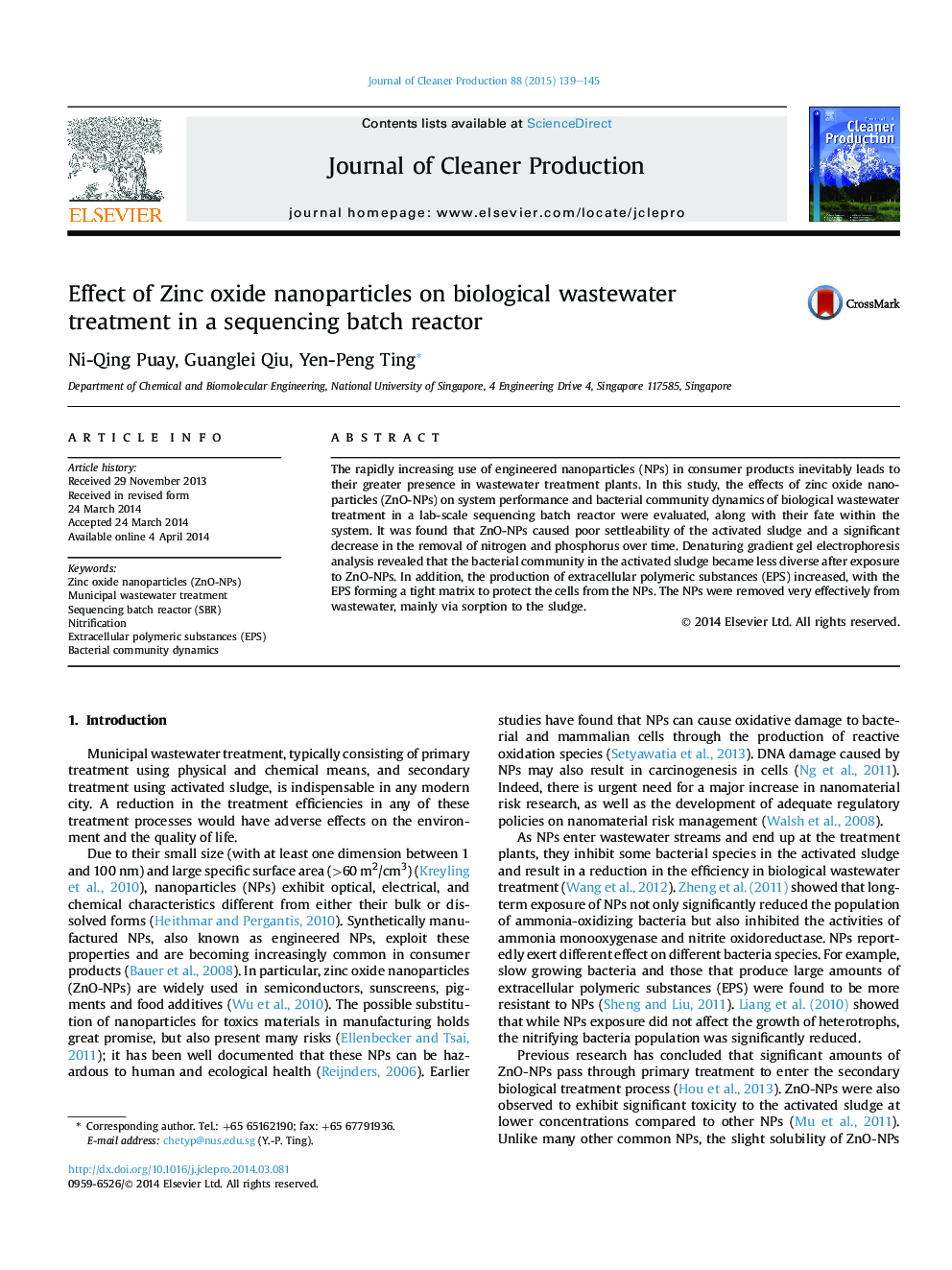| Article ID | Journal | Published Year | Pages | File Type |
|---|---|---|---|---|
| 1744764 | Journal of Cleaner Production | 2015 | 7 Pages |
•ZnO-NPs at 1.0 mg/L impair biological wastewater treatment.•ZnO-NPs significantly impact sludge settleability.•Effects on phosphorus and nitrogen removal appeared only after long-term exposure.•Long-term exposure of ZnO-NPs caused reduction in bacteria diversity.•ZnO-NPs were removed effectively in SBR mainly via sorption onto activated sludge.
The rapidly increasing use of engineered nanoparticles (NPs) in consumer products inevitably leads to their greater presence in wastewater treatment plants. In this study, the effects of zinc oxide nanoparticles (ZnO-NPs) on system performance and bacterial community dynamics of biological wastewater treatment in a lab-scale sequencing batch reactor were evaluated, along with their fate within the system. It was found that ZnO-NPs caused poor settleability of the activated sludge and a significant decrease in the removal of nitrogen and phosphorus over time. Denaturing gradient gel electrophoresis analysis revealed that the bacterial community in the activated sludge became less diverse after exposure to ZnO-NPs. In addition, the production of extracellular polymeric substances (EPS) increased, with the EPS forming a tight matrix to protect the cells from the NPs. The NPs were removed very effectively from wastewater, mainly via sorption to the sludge.
